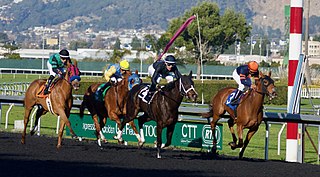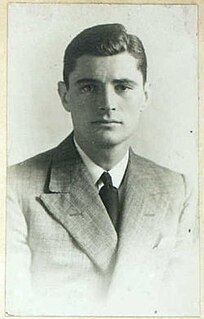| Wishing Well | |
|---|---|
| Sire | Understanding |
| Grandsire | Promised Land |
| Dam | Mountain Flower |
| Damsire | Montparnasse II |
| Sex | Mare |
| Foaled | 1975 |
| Country | United States |
| Colour | Bay |
| Breeder | George A. Pope, Jr. |
| Owner | Mr. or Mrs. Michael Lima |
| Trainer | Gary F. Jones |
| Record | 38: 12-6-8 |
| Earnings | US$$381,625 |
| Major wins | |
| Autumn Days Handicap (1979) Convenience Stakes (1979, 1980) National Orange Show Purse (1980) Gamely Handicap (1980) Wilshire Handicap (1980) Las Cienegas Handicap (1981) | |
| Honours | |
| Wishing Well Stakes at Santa Anita Wishing Well Stakes at Turfway Park | |
Wishing Well (foaled April 12, 1975 in California - died 1999 in Ireland) was an American Thoroughbred racing mare who won twelve of her thirty-six starts and who secured her place in Thoroughbred history as the dam of Sunday Silence, the 1989 Kentucky Derby, Preakness Stakes and Breeders' Cup Classic winner who was voted American Horse of the Year, inducted in the U.S. Racing Hall of Fame in 1996, and who was the Leading sire in Japan for thirteen straight years between 1995 and 2007. [1] [2]

California is a state in the Pacific Region of the United States. With 39.6 million residents, California is the most populous U.S. state and the third-largest by area. The state capital is Sacramento. The Greater Los Angeles Area and the San Francisco Bay Area are the nation's second- and fifth-most populous urban regions, with 18.7 million and 9.7 million residents respectively. Los Angeles is California's most populous city, and the country's second-most populous, after New York City. California also has the nation's most populous county, Los Angeles County, and its largest county by area, San Bernardino County. The City and County of San Francisco is both the country's second-most densely populated major city after New York City and the fifth-most densely populated county, behind only four of the five New York City boroughs.

Ireland is an island in the North Atlantic. It is separated from Great Britain to its east by the North Channel, the Irish Sea, and St George's Channel. Ireland is the second-largest island of the British Isles, the third-largest in Europe, and the twentieth-largest on Earth.

The Thoroughbred is a horse breed best known for its use in horse racing. Although the word thoroughbred is sometimes used to refer to any breed of purebred horse, it technically refers only to the Thoroughbred breed. Thoroughbreds are considered "hot-blooded" horses that are known for their agility, speed, and spirit.
Wishing Well died at Coolmore Stud in Ireland at age twenty-four in 1999 as a result of complications from colic. [3]
Coolmore Stud, in Fethard, County Tipperary, Ireland, is headquarters of the world's largest breeding operation of thoroughbred racehorses. Through its racing arm, Ballydoyle, Coolmore also has raced many classic winners and champions. The operation is currently owned and run by the Magnier family, which has been associated with a long sequence of top-class stallions since the 1850s, originally in County Cork, where stallions still stand as part of Coolmore today.

Colic is a form of pain that starts and stops abruptly. It occurs due to muscular contractions of a hollow tube in an attempt to relieve an obstruction by forcing content out. It may be accompanied by vomiting and sweating. Types include:





